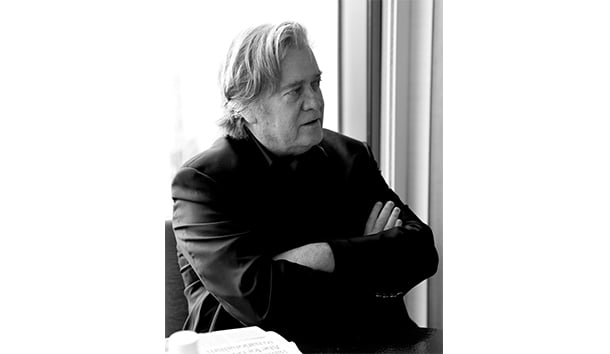America is a nation of normal people who find themselves thrust into increasingly abnormal situations. Left-wing ideologues want to take a country of families, churches, and businesses and turn it into a playpen of radical identities. This is to be done in the name of fighting oppression, where apparently the most oppressive thing of all is to be what was once considered a happy and fulfilled middle-class mother or father. Without knowing it, ordinary Americans were living lives of the deepest misery. But their salvation will come, once the left has acquired power enough to force us all to be free.
The radical left is not the only transformational ideology turning American life into an ongoing experiment. An equally revolutionary faith is to be found among elites who think of themselves as occupying the sensible center. They seek a revolution not against government or the economic order—both of which serve them well—but against what they view as outmoded habits and ideas that impede the march to perfection. Citizenship, the nation-state, and all that they entail are among the archaic remains that must be bulldozed, although citizenship might be retained if it can be redefined as “loyalty to liberalism.”
Americans who want to lead ordinary lives are caught in a dilemma: If they do not fight back against the ideologues who seek to mold them into new designs, they will inevitably lose everything that they are. But if they do actively fight back, they will have to abandon their plows in the field. The American right, confused and poorly led though it often is, consists of those who choose to dedicate themselves to the fight. And when it fights effectively—sometimes even when it doesn’t—it stands to gain the support of the ordinary citizen.
In 2016, Donald Trump became a force that many on the right could get behind, and his attacks on the left and the revolutionary center won him states that long ago gave up on Republican aspirants who were at best passive, and at worst passionately on the opposite side of average citizens’ interests. But Trump’s electoral success could only be the beginning: To secure the ordinary American’s way of life, new policies would have to be forged, and many more elections, not least for Congress, would have to be won. The right would have to be smart and organized. It would have to think not only about elections and policy but about the sources of its own morale and meaning. That would require being something more than just a reaction to the left and the center; it would require having an appreciation for real life and the patrimony of our civilization.
But with Donald Trump’s startling success, politics came first. And what would be next? Steve Bannon proposed to answer that question, first as chief strategist to the President, and then, after being fired by him, as architect of a campaign to support antiestablishment candidates in Republican primaries. His first high-profile stab at the latter, backing Roy Moore in Alabama’s special election for the Senate last year, turned into a debacle. Then in January, disparaging remarks Bannon made about the President’s son, Donald Trump, Jr., appeared in Michael Wolff’s book Fire and Fury. Bannon quickly lost the President’s goodwill—Trump took to calling him “Sloppy Steve”—and was soon cut loose by longtime financial backer Rebekah Mercer. Days later, Bannon was no longer chairman of Breitbart, the website he’d turned into a platform for populist insurgency.
Bannon’s downfall was met with rejoicing by those who saw in his plummet the collapse of the right. But this gets the story backward: It was the right’s need for both expression and leadership in policy and electoral politics alike that created the opening for Bannon. And even if he had remained in the President’s good graces, the right would have needed other vehicles: The task of arresting the onslaught of two transformative ideologies calls for many leaders and strategies, only some of them political. In victory or defeat, under good leaders or bad, there is a popular base for the right. Whatever happens to a figure like Bannon, or even to Trump, it’s the existence of that base that provides the foundation for political and cultural defiance of those who want America to become something else.

Leave a Reply